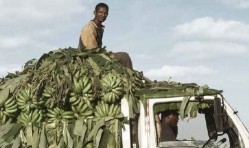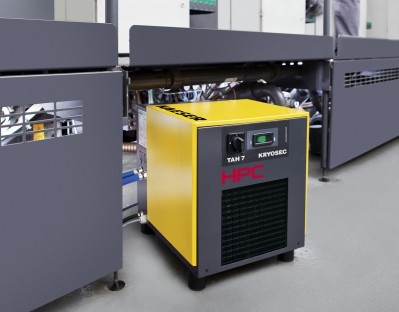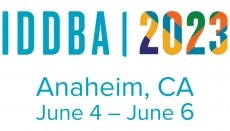25% of milk produced in Tanzania wet season is wasted
Travesty of poor refrigeration in developing countries

‘A tank of cold: cleantech leapfrog to a more food secure world’, is a follow up to the institution’s report last year which estimated up to 50% of food produced around the world is either lost or discarded.
97% of meat sold warm
Dr Tim Fox, head of energy and environment, Institution of Mechanical Engineers, told FoodProductionDaily it is urging manufacturers to roll out a sustainable cold and frozen supply chain or ‘cold chain’ to prevent food loss, alleviate hunger and improve global food security.
“When we were carrying out our previous report, ‘Global food: Waste not, want not’, we identified food losses in the developing world were a significant component of overall global food wastage and was unnecessary from an engineer’s point of view,” he said.
“We wanted to look at this in more detail and see how reducing it could allow the economy to move further out of poverty and generate a greater well-being.”
Fox said the study took one year to complete involving 10 institute members, various organisations and workshops in Tanzania, India and Washington DC to get on the ground data.
It found up to 50% of fruit and vegetables are lost in Sub-Saharan Africa and India, while Tanzania sees 25% of all milk produced in the wet season end up as wastage and 97% of its meat sold warm having never been chilled.
“The tragedy is too much of the food we produce is lost unnecessarily through spoilage in developing countries, where it is most needed, due to inadequate infrastructure and a lack of cold and frozen supply chains,” added Fox.
“The engineered infrastructure is not adequate because manufacturers don’t have suitable technology or adequately trained people to build, maintain and operate the technology. More effort is required in transferring our knowledge and skills.
Middle Class population on the rise
“It will become a reality because as the global population grows we see an increase of middle class communities and a greater demand for food, tightening up on food loss via a more sustainable route.
“The Indian Government has already allocated $15bn over five years to build a more robust cold chain infrastructure to deal with this issue of perishable produce.”
The Institution is now holding a number of meetings with key experts to discuss how Governments of newly emerging economies must prioritise support investment in cold chain infrastructure to improve food security.
Donor country governments and development NGOs must support and incentivise aid recipients to develop sustainable cold chains using renewable energy and waste cold and the UK engineering community must define opportunities a joined-up cold economy presents for the developed and developing world.
“Donor Governments, like the UK and USA, NGOs involved in development initiatives and retailers establishing supply chains, need to prioritise investment into affordable, reliable and sustainable cold chain infrastructure,” said Fox.
“This includes combining renewable energy with technologies for producing both power and cooling, such as for example cryogenic energy storage using liquid air or nitrogen.”
He added many developing countries have little or no connectivity to a large-scale electricity grid, and 70% of people in sub-Saharan Africa have no access to electricity and 350 million people in India are located off-grid in rural locations.
Building on existing ambitions for electricity access and energy security, governments of these countries have a role to play in encouraging development of renewable energy projects with energy storage to provide the cold/freezing needed for effective roll-out of sustainable cold chains.












